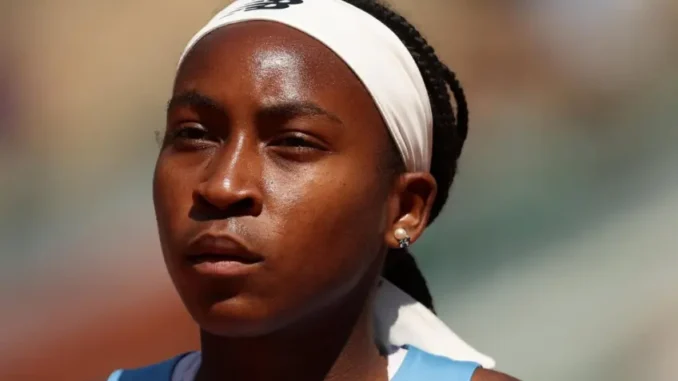
Coco Gauff, the 21-year-old tennis prodigy and world number two, delivered a powerful call for action against online abuse ahead of her Berlin Open campaign in June 2025, revealing the harrowing extent of the threats and harassment she has endured. Fresh off her second Grand Slam triumph at the 2025 French Open, where she staged a dramatic comeback to defeat Aryna Sabalenka, Gauff used her platform to shine a light on the dark side of social media, detailing death threats, racist comments, and explicit content targeting her, her family, and her boyfriend, Jalen Sera. Her candid remarks, made in the wake of a damning WTA and ITF report on online abuse in tennis, underscored the urgent need for reform in a sport grappling with a toxic digital landscape.
Gauff’s revelations came during a press conference in Berlin, where she was preparing to face China’s Wang Xinyu in the second round. “It’s the worst you can get. Death threats, to your family, to yourself. I’ve had people DM my boyfriend and friends about it. Racist comments, like all you can imagine. Nudity, things like that. It’s a gross kind of thing that we have going on in tennis,” she said, her voice steady but tinged with frustration. The abuse, she explained, has been a constant since she burst onto the scene at 15, with incidents dating back to age 12 when Croatian boys threw orange peels at her and hurled racial slurs during a tournament in France. “I just felt like that’s just something that people experience, which is not a great thing,” she reflected, noting her resilience in overcoming such trauma.
The timing of Gauff’s comments coincided with a joint WTA and ITF report revealing that 40% of online abuse in tennis is linked to gambling, with 97% of abusive messages stemming from just 23% of accounts. Five WTA players, including Gauff, absorb 26% of the tour’s total abuse, a statistic that highlights the disproportionate targeting of high-profile stars. Gauff, who recently confirmed her relationship with Sera in a BOSE promotional video, emphasized that the harassment extends beyond her, reaching her loved ones. “It’s something that we have to keep bringing awareness to. I would love for some of the social media platforms to get involved, not only when it comes to tennis players. Influencers, other athletes, they all get these comments,” she urged, advocating for broader accountability.
Gauff singled out Instagram as the worst platform for comment filtering, noting, “I see basically everything on there. I try to do it on my own account, to filter certain words, but people get creative and spell it out in different ways.” She praised TikTok for better moderation, adding, “TikTok does a better job of filtering comments, so you don’t really see it.” Her solution? Stronger measures to ban repeat offenders. “For me, it’s more about banning these accounts and banning people with the same phone number or email from making new accounts. You can block them, but they just go and make a new account. There has to be a way to fix that system,” she said, echoing sentiments shared by peers like Katie Boulter, Jessica Pegula, and Carlos Alcaraz, who have also faced threatening messages.
Despite her French Open triumph, where she became the first American woman to win since Serena Williams in 2015, Gauff’s Berlin campaign ended abruptly with a 6-3, 6-3 loss to Wang Xinyu. The defeat, her first since Paris, highlighted the challenges of transitioning to grass, a surface where her forehand has drawn scrutiny. Yet, Gauff’s focus remained on her advocacy, a role she’s embraced since delivering a powerful Black Lives Matter speech at 16 in her hometown of Delray Beach, Florida. “I think it’s sad that I’m here protesting the same thing that my grandmother did 50-plus years ago,” she said in 2020, a testament to her commitment to social justice.
Gauff’s courage in confronting online abuse, coupled with her on-court brilliance, underscores her status as a transformative figure in tennis. As she prepares for Wimbledon, where she aims to improve on her 2024 fourth-round exit, her call for safer digital spaces resonates beyond the sport, challenging platforms to protect athletes and fans alike from the vitriol that threatens to overshadow their achievements.
I think this has to Stop, colour doesn’t play tennis, jealousy was created one day with human being.Nothing will stop coco from plying good 🇺🇲💪